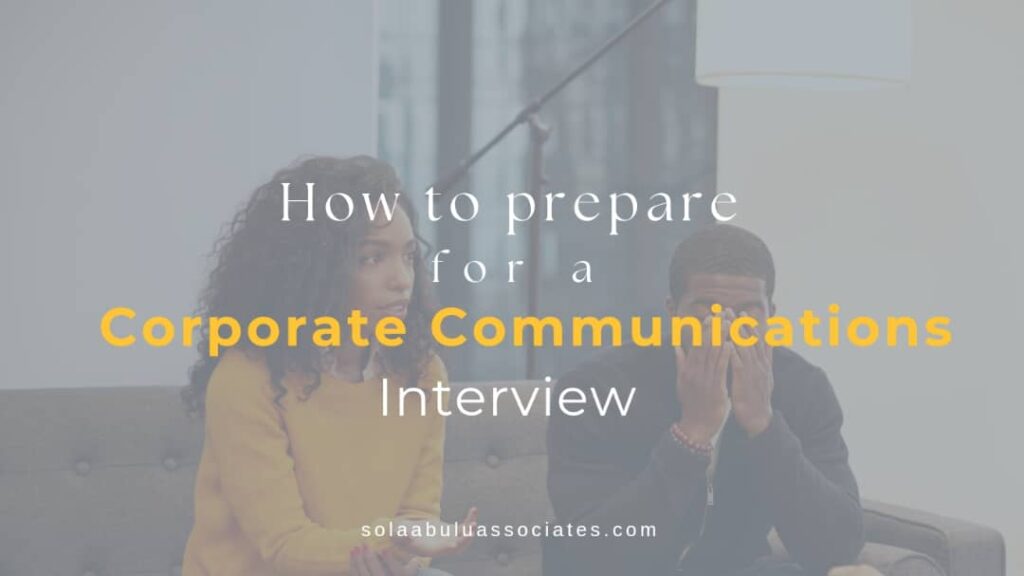What to do when preparing for a corporate communications role?

When interviewing for a corporate communications role, it is expected that you carry out a lot of research and be able to communicate in the language that assures your recruiters that you are conversant in the field. This article will provide communications professionals with the necessary tips to pay attention to when preparing for a corporate communications interview, especially for major organizations.
- Know the organizational or business context: It is unwise to prepare for a corporate communications interview without understanding the business context. What is the business sector? What are the business or executive leaders focused on? Are they going through a restructuring? What is the size of the organization? The internet comes in handy for this research, so always be prepared. Recruiters need you to understand the context of their business or organization to be confident in your ability to deliver.
- Understand the business strategy: Big organizations that are conglomerates also have their business strategy available online. It is important that communications professionals understand this too. A communications strategy is said to be strategic when it is tied to the overall business strategy to meet set objectives. This is why understanding the business strategy keeps you on the edge and helps your ability to communicate during the interview. It is also important to note how the organization is implementing this strategy and how the audience receives it.
- Get familiar with the job scope: People generally have the assumption that it is unprofessional to look through a document during an interview. This point emphasizes the need to be familiar with the job description and if need be, it can be with you while interviewing. What is unprofessional is an inability to express oneself properly without completely reading from a document all through. This tip is important because as a communications professional, you must not make the mistake of speaking too much about your experiences without touching on the job description and expectations of recruiters.
- What is the dimension? Answering this question helps you understand how large the system is and what your job as a corporate communications professional covers. Some organizations extend into several countries and regions with senior leaders across all companies in the conglomerate. This is why this question helps you know which stakeholders you will be relating with, primarily.
- What are the roles and responsibilities of the job?: The communications industry has over 12 expertise areas and it is unlikely that one person has the skills and competencies required for all expertise areas. This is why you will have to note what responsibilities the recruiters need you to handle; e.g social media, website, newsletter, campaigns, events, publicity, etc.
What skills are required in a corporate communications role?
Many aspiring corporate communications professionals miss out on understanding the need for theoretical practice (Check out our video resource on the practice and theory of strategic communications). This is what gives birth to the assumption that it can be winged or that you are a sought-after corporate communications professional because you are a good speaker. Corporate communications roles are not about public speaking as much as they are about the following communications skills:
- Strategic thinking
- Leadership
- Understanding how to make an organization work (internal and external)
- Confidence on the job
Do you want to learn what it takes to become a strategic communications expert? This article is your guide.
……………………………………………..
Sola Abulu & Associates is a strategy and communications training and consulting firm focused on enabling businesses, brands and institutions to achieve their desired objectives through strategic communications and reputation management.
